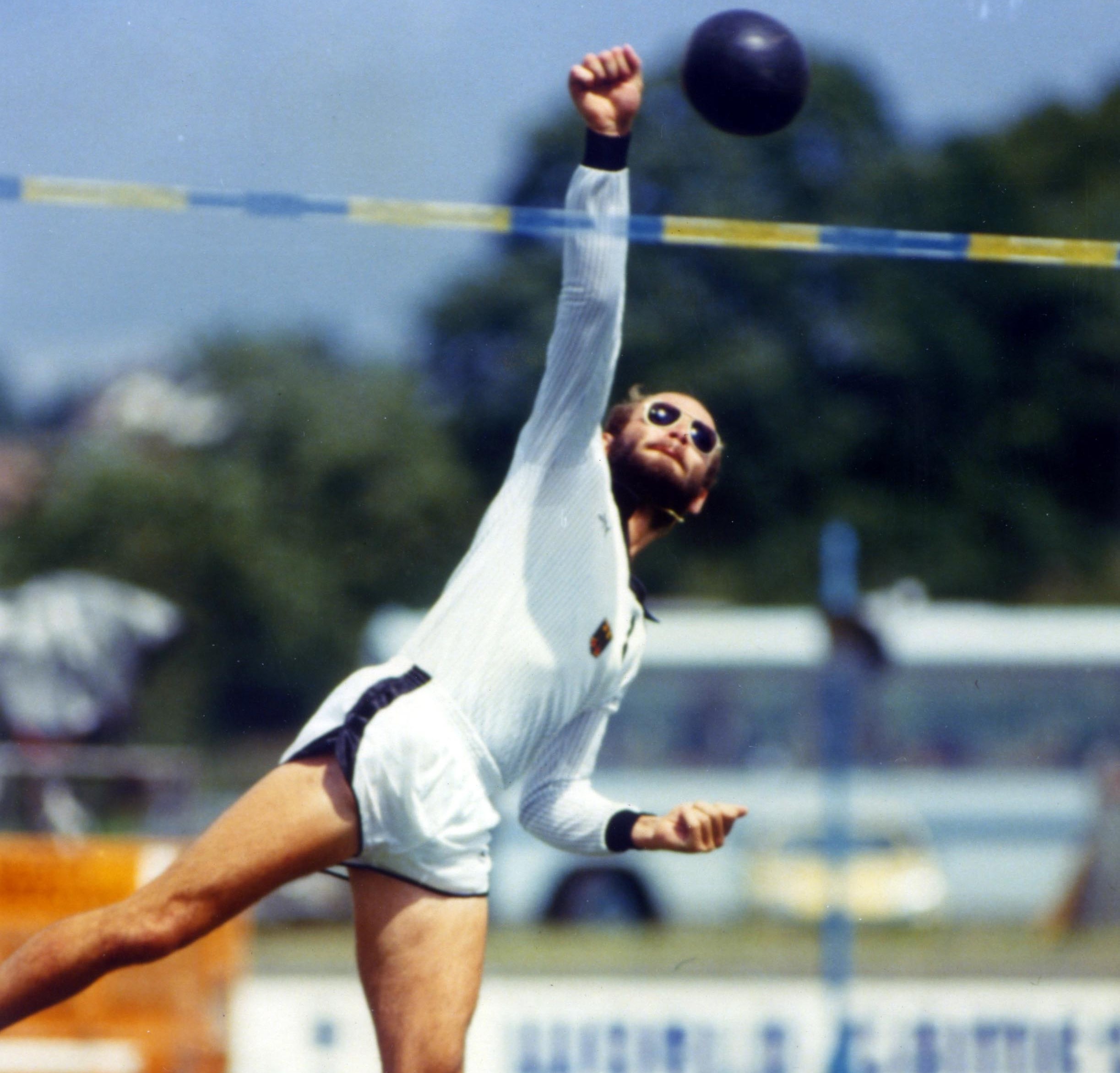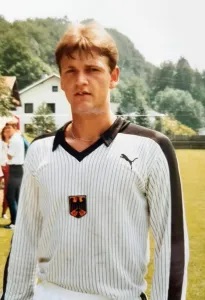
Fistball and The World Games have been a great combination for four decades. At just the second edition of the multi-sport event, a men’s fistball tournament was held for the first time in London in 1985. Four nations competed, and Germany claimed the inaugural title. Udo Mehle, a striker for TSV Bayer 04 Leverkusen, made history as part of the winning team.
Rain. That’s the first thing Udo Mehle remembers when thinking back to the 1985 World Games in August. It was the first time fistball players could present their sport on the stage of this international multi-sport event for non-Olympic disciplines—and they did so under extremely poor weather conditions. “It rained almost continuously during the entire fistball competition,” he recalls. But despite the uncooperative weather, many other moments stayed with Mehle, making those days in London truly special.
Four Teams in London
 Germany, Austria, Switzerland, and Brazil were the four competing nations. South West Africa (Namibia) had also registered but was denied entry due to political tensions in southern Africa. The tournament format included a round-robin with home and away matches over two days to determine the semifinal pairings. The German team entered the tournament highly motivated—not only to win the first-ever World Games title but also to redeem themselves after losing the European Championship to Austria a year earlier. “After winning the World Championship in 1982 in Hanover, there had been some changes in the squad that weren’t fully settled yet,” Mehle recalls.
Germany, Austria, Switzerland, and Brazil were the four competing nations. South West Africa (Namibia) had also registered but was denied entry due to political tensions in southern Africa. The tournament format included a round-robin with home and away matches over two days to determine the semifinal pairings. The German team entered the tournament highly motivated—not only to win the first-ever World Games title but also to redeem themselves after losing the European Championship to Austria a year earlier. “After winning the World Championship in 1982 in Hanover, there had been some changes in the squad that weren’t fully settled yet,” Mehle recalls.
During that time, Mehle earned his place in the national team—something he had never dreamed of as a youth player. He started playing at age eight in Cologne and continued until age 17. “Then the team fell apart,” Mehle explains. He transferred to Leverkusen, a Bundesliga club, where the demands were suddenly much higher. “With my poor technique, I was often used as a bad example during training drills,” he laughs. But the young striker didn’t let that stop him. He worked hard and had a mentor in Udo Cymera. “Without him, I probably never would have made the national team,” Mehle admits.
Strong Performances in the Group Stage and Semis
In 1985, Mehle and his teammates had a golden opportunity to take part in The World Games. “It was definitely something special—something everyone wanted to be part of,” says the former national player. The matches were held at Barnet Copthall Stadium, alongside the tug-of-war competition. While the European teams fielded their best squads, Brazil sent a promising but inexperienced team that struggled against seasoned opponents. Mehle played right front in the matches, alongside Germany’s all-time most-capped player Dieter Thomas. “My job was to chase down short balls and be ready to step in for Dieter on the attack—sometimes even after 28 minutes without hitting a single ball.”
Germany topped the group after both legs, ahead of Austria on points, and cruised past Brazil in the semifinal (39:23). “The Brazilians arrived with sponsor logos on their jerseys, but that wasn’t allowed under the World Games rules, so they had to turn their shirts inside out,” Mehle remembers.
Heavy Rain on Final Day
That wasn’t the only odd story. The tug-of-war athletes also made a mark—literally. “They held their finals right next to our field and dug their heels so deep into the turf they reached the drainage system. It looked more like a plowed field than a lawn,” laughs Mehle. The tough conditions also affected the fistball tournament. The third-place match between Switzerland and Brazil was canceled due to heavy rain, and both teams were awarded bronze medals. The final between Germany and Austria went ahead, however. It was played over two 15-minute halves, with Germany pulling away after a tight first half (17:14) to secure victory (37:29).
Even though there was no athletes’ village, for the German team, it still felt a bit like being at the Olympic Games. “Our matches were held in the middle of the overall World Games schedule, so we didn’t take part in the opening or closing ceremonies,” says Mehle. There was also no time to watch other sports. “Still, it had a special atmosphere, a special vibe—and part of that was thanks to the great team spirit we had.”
The 1985 World Games in London would not be Mehle’s only appearance. He also made the squad for the 1989 edition in Karlsruhe, where Germany defended the title in front of 5,000 fans. Later, he served as an international referee at the 1997 Games in Lahti (Finland) and in 2009 (Taiwan), and he attended the 2005 Games in Duisburg as a spectator.
Final Standings – World Games 1985:
-
Germany
-
Austria
-
Switzerland & Brazil (shared bronze)
Original text: Faustball Deutschland at the 2022 World Games (Author: Sönke Spille)


 Deutsch
Deutsch